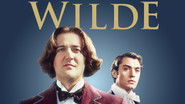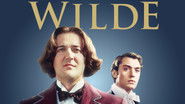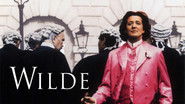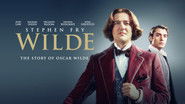SnoopyStyle
In 1882, famed writer Oscar Wilde (Stephen Fry) visits America. He returns to England to marry Constance Lloyd (Jennifer Ehle) to the approval of his mother (Vanessa Redgrave). He begins a sexual affair with his friend Robbie Ross (Michael Sheen) and has a family with Constance. Then he falls for the dashing, self-indulgent Lord Alfred Douglas (Jude Law).Bosie is dislikable. In short, he's a rich annoying brat. The only person less likable is his father. It makes the relationship unappealing. The movie could have portrayed it as a destructive obsession. That would be more epic. The movie needs to foreshadow the dire consequences by presenting a darker attitude of the day. His homosexuality is mostly a secret but those who know seems to tolerate it. It is missing the dangerous edge until the arrival of the father halfway into it. Overall, it is elevated by the performance of Fry but it needs more danger in the first half. Fry's calm demeanor doesn't project danger. His relationship isn't appealing. It could have been more intensity but Fry is good.
sandover
I finished the Ellmann biography some days ago, and I acknowledge I am still in a state of shock - the rise and fall of the Roman Empire would not have that much of an interest for me, probably, for, having the life of a man thriving in paradoxes that still invites the most scrutinizing of speculations, I feel that having escaped the most classical, straightforward wondering of what he was REALLY after, we still but skim the surface. How much paradox does one man need? Perhaps his Irishry, or just plainly his conviction that the social being of our lives is as much one can hope and cope for, in order to outplay the paradoxes that constitute us, or is simply undifferentiated from what we "inwardly" are, is a grim intuition undifferentiated from its enactment.That said, it was the biography that compelled me to see again the film. It was in an art-nouveau cinema in Paris that I first saw it, the time of its release, and that was good, it was nice the way the vitreaux rhymed with Beardsley's engravings in the beginning! -and with one's youth. I was cherishing the display of paradoxes from one of my idols. Yet, being young, the whole effect of the film was somewhat depressing, for reasons I was too young to fathom.Revisiting the film now, I almost considered it a light-hearted experience, after the detailed ordeal of the book. Fry stroke a resemblance welcome and somewhat haunting, yet I found him a bit lacking polemical drive: his voice was a bit too passive here and there in order to fully convey the eccentricity of his genius.Maybe it is that the film was too focused on the Bosie part of the story, leaving out of the story, as one finds out, that the outcome was more complex that the film lets it be. For example, his marvelous quip "My dear Sphinx, how wonderful of you to know what hat to wear in the morning you're meeting a friend that has been away," after his being just released from prison, was not spelled outside the prison, but when he had gone to her family house. This I find crucial, for he was waiting for some time to be received, and then when they finally lodged him - he was homeless - he stayed in the room of her son, with toys scattered around. "Would you like the toys to be removed?" she had asked him, and for the first time perhaps his response was - literally - without wit, he answered just "No, leave it as it is." I found that detail staggering: imagine the Giant (and I consider this a detail the film should have exploited since it relies so much on parallels drawn from his bedtime stories, to call them that) lying destitute in a child's room.There are many such details transposed to a more dramatic handling for the sake of being narrated in the space of less than two hours in a film, as a great part of what actually passes between letters could not but turn into dialogue, even if the part after his release, which was really sordid, till his complete downfall, is omitted, for love's slow-motion, fading images. Here one should turn and thank the actors for they have imagined their characters justly, even if in accordance to an adaptation (that some times has a television quality). This is going to be for some time the definite film for his life, perhaps graciously leaving out the more complex, human stuff, demonstrated in an exhausting inclusion out of the picture as his last days in Paris witness, even if this is what makes his life exemplary in more than one way ("I am fighting a duel to death with my wallpaper, and one of us has to go" was one of his last witticisms). I wouldn't want a film to dwell too much on what binds together an intuition from its enactment, would you?
Framescourer
In 1997 Stephen Fry was enjoying an unprecedented surge of sympathy and reverence from the British public. Only two years previously he had abandoned a West End play after only three nights and fled abroad. The fuss that his episode created effectively ignited the conscience of the British people who, given the choice of vilifying a performer for acting (apparently) unprofessionally or sympathising with an overburdened national treasure chose the latter.This is an important story in relation to Wilde, released only two years later. Oscar Wilde was a character not only of similar physical attributes, intellect and sexuality as Fry but also with the same standing in relation to society (and specifically London society = the media). However, for all his popularity, Wilde's pecadilloes ultimately brought him public opprobrium and he fell foul of the law. Fry however rediscovered his confidence to assume a more exalted mantle in the estimation of the British public following Cell Mates-gate.This film is Fry riding that public affection - and failing to really return to love, frankly. Wilde is a more of a document than a drama, despite super turns from Jude Law as Bosie Douglas and Jennifer Ehle as Wilde's wife. It's a competent film but it doesn't touch me at all. Most strangely perhaps is that the film fudges an assessment of Wilde's standing in retrospect: neither the document nor the drama come down in judgement either way on the man or the life. Given the personal affection of Fry for Wilde it's all very odd. 4/10
tyleet27
As a Wilde aficionado, I have to say that despite the screwing around with the timeline and the origins of a few characters such as Robbie Ross (in the interest, I feel, of cinematic plausibility and tension), the movie really does do an excellent job of presenting Oscar Wilde to the general public. In particular, the film retains much of the spirit of Joseph Ellman's celebrated Wilde biography, showing a usually neglected aspect of Wilde's character--that of the "unselfish giant".As a Stephen Fry whore, I don't really need to tell you how stunning his performance is, showing us Wilde's deceptively sharp wit alongside his surprising innocence and gentle spirit, a delicious contrast to the petulant arrogance Jude Law brings to Bosie. The relationship with Constance and Wilde's children is particularly well done, commentating lightly on the nature of family versus art--and the slow telling of "The Selfish Giant" seems almost like a commentary by the author himself. Perhaps my only criticism would be that the sheer magnitude of time attempted by the film might be overwhelming to anyone not at least vaguely familiar with Oscar's life. Rather as though the director looked at all the salivatingly wonderful times in his life, and decided to do them all, instead of just one or two. Wilde's life as a writer and an aesthete is largely overlooked, perhaps forgivably since the modern audience is always more concerned with romance than achievement. We'll save the movie on Oscar's ulterior decorating for later.All in all, I can honestly say that Wilde is one of my most favorite films, stuffed with visual loveliness (Really? A young, hot Stephen Fry AND a pouting Jude Law? Who could ask for more?) wickedly genteel humor, a subject to end all others, and a sort of quiet dignity and elegance lying underneath it all. To anyone who disagrees, I have only this to say to you-- Well. It's perfectly easy to be cynical.
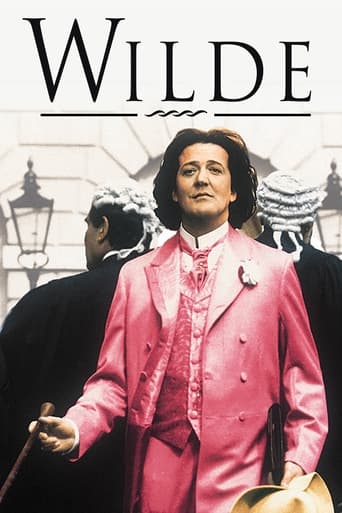
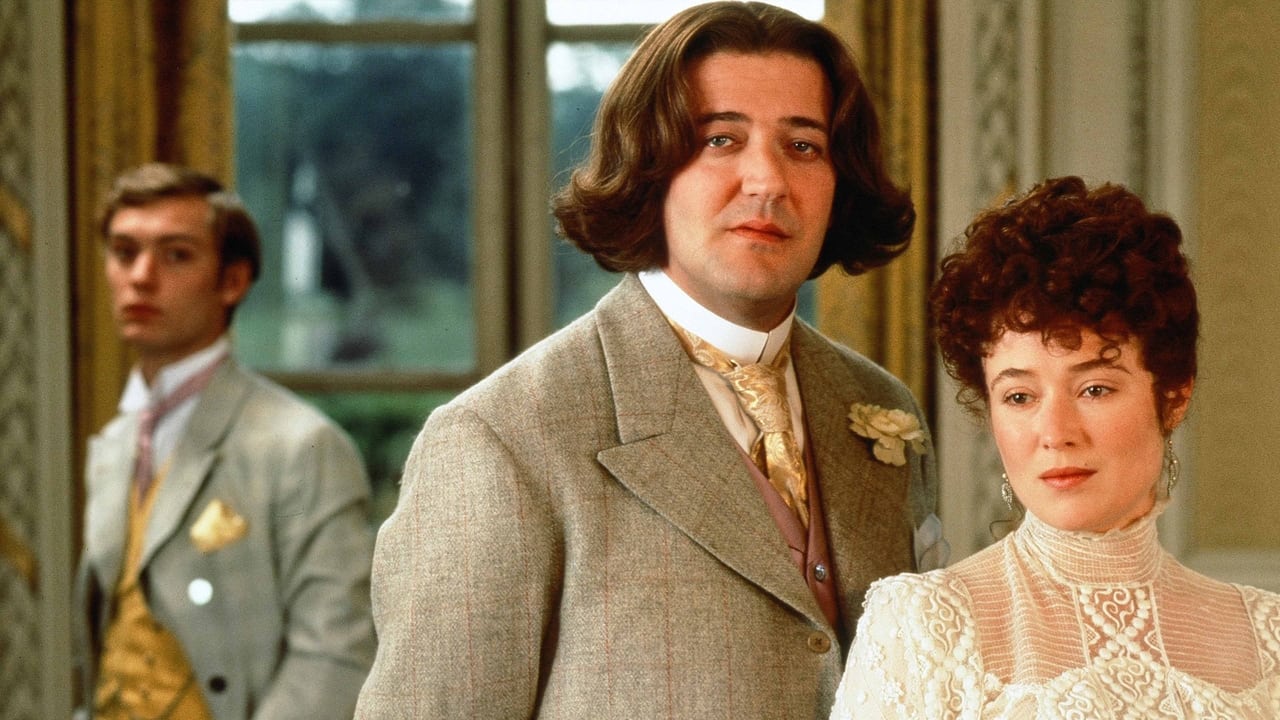

 AD
AD


